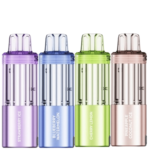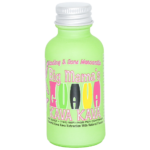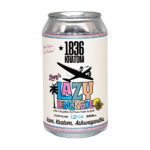The world of cannabis is complex, with two of its most well-known compounds, CBD (cannabidiol) and THC (tetrahydrocannabinol), often at the forefront of discussions. While both are derived from the cannabis plant, their effects on the body and mind are distinctly different. CBD is celebrated for its calming and therapeutic properties, often used for managing anxiety, discomfort, and inflammation without the psychoactive effects. On the other hand, THC is renowned for its ability to produce a euphoric “high,” making it popular for recreational use, though it also has significant medicinal benefits, such as alleviating chronic discomfort and stimulating appetite.
In this article, we’ll explore the key differences between these two cannabinoids, diving into their unique effects, legality, potential benefits, and how they can be used to support overall well-being. Whether you’re curious about incorporating cannabis into your lifestyle or seeking to understand the science behind it, this guide will clarify the roles CBD and THC play in the evolving landscape of cannabis health.
CBD (cannabidiol) and THC (tetrahydrocannabinol) are two of the most prominent compounds found in the cannabis plant, specifically in its species Cannabis sativa and Cannabis indica. Though they come from the same plant, these cannabinoids have vastly different effects on the human body. CBD is non-psychoactive, meaning it doesn’t induce a “high” or alter your mental state. Instead, it is widely used for its therapeutic benefits, helping with issues like anxiety, discomfort, and inflammation. THC, on the other hand, is responsible for the euphoric effects often associated with cannabis. This psychoactive compound can alter perception, mood, and behavior, making it a favorite for recreational users while also offering significant medical applications.
Both CBD and THC interact with the body’s endocannabinoid system (ECS), which plays a crucial role in regulating functions like sleep, mood, and discomfort. However, they do so in different ways. While THC binds directly to receptors in the ECS to produce its psychoactive effects, CBD works more indirectly by modulating receptor activity. This distinction is what makes CBD appealing for individuals seeking therapeutic relief without the “high” associated with THC. Understanding the unique characteristics of both cannabinoids is essential for anyone considering cannabis for health or recreational use.
CBD and THC may share a similar molecular structure, but their interaction with the human body differs in critical ways. Both cannabinoids consist of 21 carbon atoms, 30 hydrogen atoms, and 2 oxygen atoms, yet the arrangement of these atoms influences how they bind to receptors in the body’s endocannabinoid system (ECS). The ECS is a complex network of receptors, enzymes, and endocannabinoids responsible for regulating key functions such as mood, appetite, pain, and immune response. Despite their structural similarities, THC and CBD interact with this system in markedly different manners, which explains their contrasting effects.
THC binds directly to CB1 receptors, which are primarily found in the brain and central nervous system, leading to the psychoactive “high” commonly associated with cannabis. This direct interaction with CB1 receptors influences perception, mood, and cognition. CBD, however, does not bind directly to CB1 receptors. Instead, it interacts indirectly by influencing how these receptors respond to other cannabinoids, and it can even suppress the psychoactive effects of THC. CBD’s ability to enhance the function of the ECS without causing intoxication is what makes it a popular choice for therapeutic purposes like discomfort relief, anxiety management, and inflammation reduction. The distinct ways in which these cannabinoids engage the ECS highlight their individual benefits and offer insight into how they can be used together for balanced effects.
CBD and THC, while both derived from the cannabis plant, offer vastly different psychoactive experiences. These effects play a key role in how each cannabinoid is used for both medical and recreational purposes, with each offering unique benefits. Understanding the differences can help individuals make informed choices that align with their personal needs.
THC’s psychoactive effects are often viewed as its defining feature. While some associate it with the “high” of recreational cannabis use, THC also provides several positive effects that can be beneficial, particularly in medical settings. When used mindfully and in proper doses, THC offers a range of mental and physical benefits:
CBD offers a different set of benefits, specifically for those seeking relief without the psychoactive effects of THC. Because it doesn’t induce a “high,” CBD is favored by individuals who want therapeutic results without any alteration to their cognitive function. Its benefits include:
Both CBD and THC offer valuable psychoactive effects that serve different needs, making them versatile tools for enhancing well-being—whether through relaxation and discomfort relief with THC or mental clarity and stress reduction with CBD.
CBD, or cannabidiol, is celebrated for its therapeutic potential across various health conditions. Unlike THC, CBD does not induce a high, making it a preferred option for those seeking relief without psychoactive effects. Here’s a quick look at its key medical benefits:
CBD’s ability to manage these conditions without altering cognitive function highlights its versatility and therapeutic potential.
While both CBD and THC offer numerous benefits, they can also present side effects. CBD is generally well-tolerated but may cause mild effects such as drowsiness, dry mouth, or changes in appetite. It can also interact with certain medications, so consulting a healthcare provider is advisable. THC, known for its psychoactive effects, can lead to side effects like dizziness, dry mouth, increased heart rate, and impaired memory or coordination. For some individuals, especially those new to cannabis or sensitive to its effects, THC may also induce anxiety or paranoia. Understanding these potential side effects helps in making informed decisions and using cannabinoids effectively.
The legal landscape for CBD and THC has evolved significantly, with many regions enacting favorable regulations. CBD, especially when derived from hemp with less than 0.3% THC, is legal in numerous places worldwide, including many parts of the United States, Europe, and Canada. This accessibility supports its use in various health and wellness products. THC laws are also becoming more progressive; several countries and states have legalized or decriminalized THC for recreational use, recognizing its therapeutic potential. Medical cannabis programs in many areas allow for THC use under doctor supervision, providing patients with access to relief from chronic conditions. These advancements reflect a growing acceptance of cannabis and its compounds, making therapeutic options more accessible.
Choosing between CBD and THC largely depends on your individual needs and preferences. CBD is ideal for those seeking therapeutic benefits without the psychoactive effects. If you’re looking for relief from anxiety, discomfort, or inflammation while maintaining mental clarity and focus, CBD is a strong option. Its non-intoxicating nature makes it suitable for daily use and is often preferred for individuals who are sensitive to the psychoactive effects of THC or those who need to stay sharp and productive throughout the day.
On the other hand, THC may be the better choice if you’re seeking a more pronounced relief from severe discomfort or specific conditions like nausea or muscle spasticity. THC’s psychoactive effects can provide additional benefits, such as enhanced relaxation and improved appetite, which are particularly valuable for individuals undergoing treatments that affect these aspects. If you’re comfortable with the “high” and are seeking substantial symptom relief, THC could offer the targeted benefits you need. Ultimately, your choice should align with your health goals, lifestyle, and tolerance for psychoactive effects, and consulting with a healthcare provider can help in making the most informed decision.
As you navigate the differences between CBD and THC, understanding their unique benefits and effects can help you make an informed choice tailored to your needs. Whether you seek the therapeutic relief of CBD without psychoactive effects or the targeted benefits of THC with its pronounced effects, each compound offers valuable advantages. Evaluating your health goals, lifestyle, and tolerance will guide you in selecting the right option for your well-being.
For those interested in exploring high-quality CBD and THC products, Austin Vape and Smoke is your go-to destination. Since opening in 2012, Austin Vape and Smoke has expanded its offerings to include a range of health and wellness products, including CBD, hemp, and kratom. By visiting our website, you can discover a diverse selection of products designed to enhance your lifestyle and meet your specific needs. Explore how Austin Vape and Smoke can support your journey to better health and well-being while embracing the vibrant spirit of Austin.
What are the main differences between CBD and THC?
CBD (cannabidiol) and THC (tetrahydrocannabinol) are both cannabinoids found in cannabis, but they have different effects. CBD is non-psychoactive and is primarily used for its therapeutic benefits, such as reducing anxiety and pain. THC, on the other hand, is psychoactive and is known for inducing a “high” while also providing pain relief and stimulating appetite.
How does CBD interact with the endocannabinoid system?
CBD interacts with the endocannabinoid system (ECS) by modulating the receptors in the ECS rather than directly binding to them. This interaction helps regulate various physiological processes, including mood, discomfort perception, and immune function, without causing intoxication.
What are the therapeutic benefits of THC?
THC provides several therapeutic benefits, including significant discomfort relief, appetite stimulation, and muscle relaxation. It is also effective in reducing nausea, making it a valuable option for patients undergoing treatments that cause these symptoms.
Are there any side effects associated with CBD and THC?
CBD is generally well-tolerated, but some users may experience mild side effects such as drowsiness, dry mouth, or changes in appetite. THC can lead to side effects such as dizziness, dry mouth, increased heart rate, and impaired memory or coordination. It may also induce anxiety or paranoia in some individuals.
What is the legal status of CBD and THC?
CBD, especially when derived from hemp with less than 0.3% THC, is legal in many regions around the world, including parts of the United States and Europe. THC laws are also becoming more progressive, with several states and countries legalizing it for recreational and medical use. The legal status varies by location, so it’s important to check local regulations.




